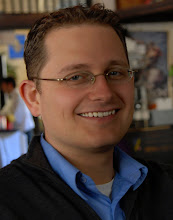I have completed Chapter 9, which documents Toole’s first year in Puerto Rico where he was an English instructor in the Army. The chapter ends a few months before he begins writing Confederacy, but offers some key experiences that clearly influenced the development of the novel. In studying his letters from 1962 I have been keenly aware of the challenge of rendering the idiosyncrasies of a generation.
Toole’s letters from Puerto Rico in 1962 are filled with humorous observations, but they are often at the expense of Puerto Ricans. He makes some lamentable comments that would have broken the hearts of his students had they read his letters. But yet, he was known as a caring and devoted teacher to his Puerto Rican students. In context, his letters are private and, as I point out in the chapter, a game of narrative voice. But that does not make his most deplorable comments anymore palatable to me as a reader.
So the question becomes, how do we understand such commentary from a person reared in a social climate and generation that considered racial differences inherent and natural? Is it unfair to impose our own values of the politically correct onto a moment in history that had yet to cultivate those social values? Or are we obligated to uproot these inequities and take them to task?
Of course, decades from now, our children will struggle with our own idiosyncrasies. They might despair the contradiction of our lip service to “going green,” but our actual laziness when it came to changing our lives for such a principle. Or perhaps they will find the resolution to the debate on same sex marriage a simple question of civil rights. Indeed, our children will shake their heads at us too. But hopefully they will seek to understand the milieu of our era, as I do the same in this project, not as a justification, but as a way to better understand the slow movement of change, the hard earned lessons of any generation.
